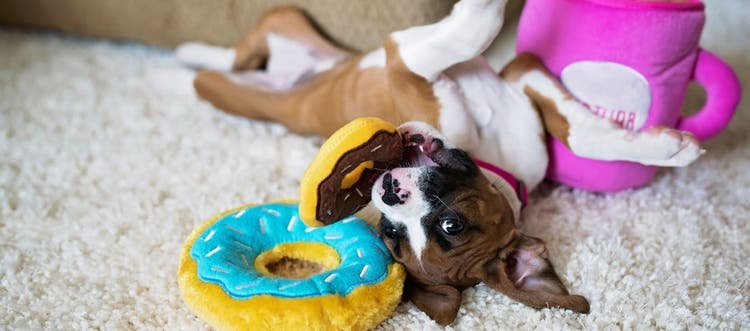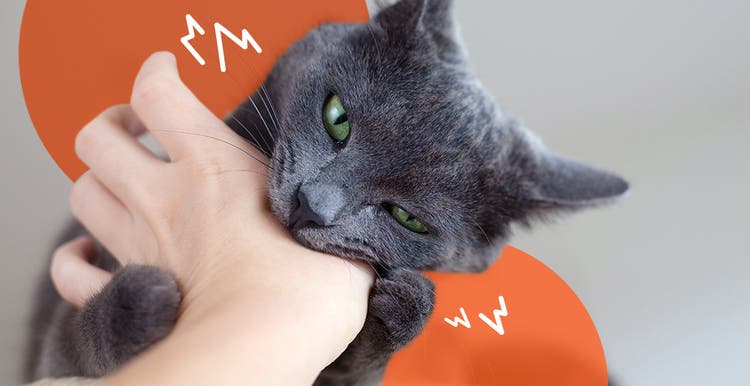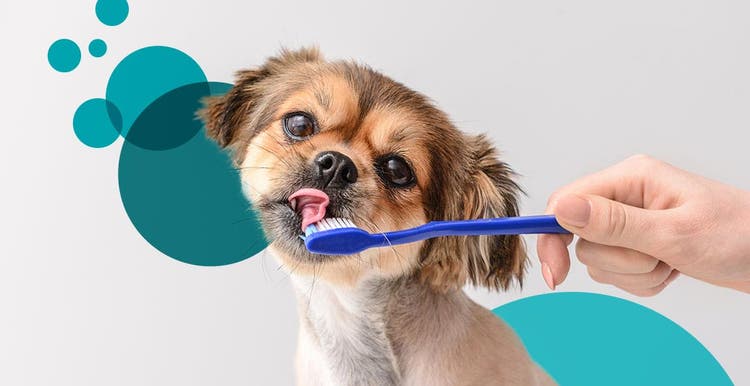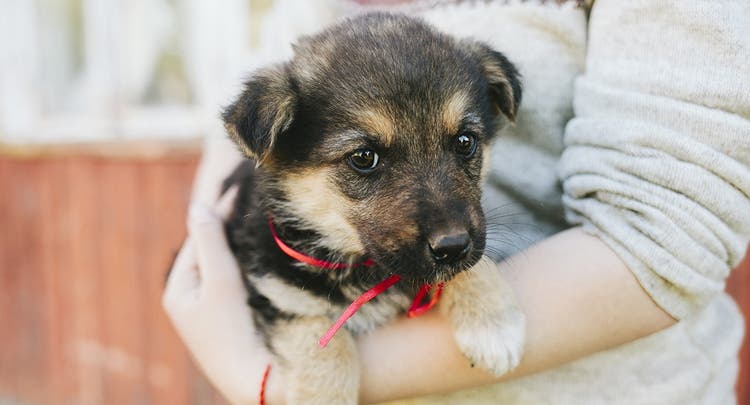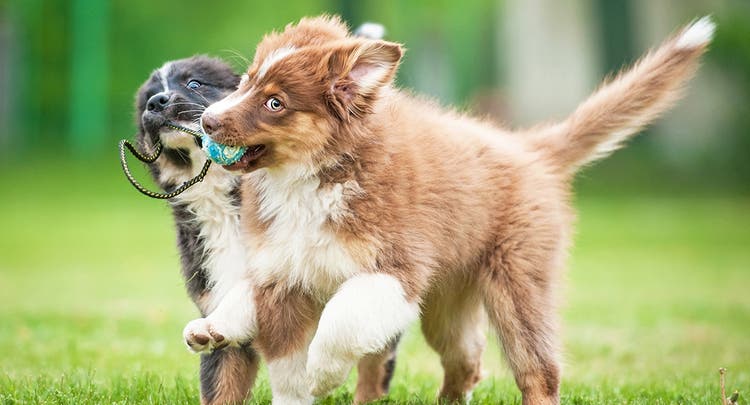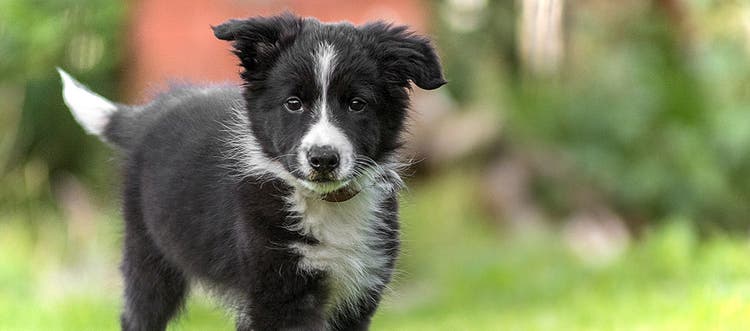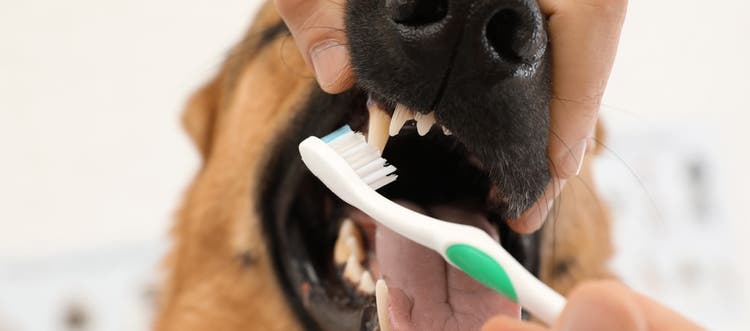What to expect when your puppy is teething.
Some parts of owning a puppy are universal - and one of those is teething. Not only is puppy teething uncomfortable for your pup, but their natural response to chew during this process means your shoes, pillows or couch could end up being destroyed.
Consider these puppy teething tips to help make the process as smooth and comfortable as possible.
Puppy Teething: A Timeline
To best prepare for a teething puppy, you'll want to know what to expect and when to expect it. As a new puppy owner, you will likely have a lot of questions, such as:
- When do puppies' baby teeth come in? Your dog's baby teeth may start coming in as early as 3 weeks old. Expect all 28 puppy teeth to grow in by week six. Since dog experts discourage separating puppies from their mother until they're seven to eight weeks old, you likely won't have your puppy when their baby teeth come in.
- When do puppies lose their baby teeth? Adult teeth start to come in and baby teeth start to fall out when the puppy is 3 months old, usually toward the end of the third month.
- When do all the puppy's adult teeth grow in? Expect the complete set of adult teeth (typically a total of 42) to grow in when the puppy is between six and eight months old.
My Teething Puppy Is in Pain - What Do I Do?
No one wants to see their puppy suffer, and you can ease their discomfort in several ways. Some options include:
- Chew toys: Chew toys made of soft or bendable materials simultaneously entertain your dog while providing relief. Be sure to buy age-appropriate toys that properly fit your puppy's small mouth, and avoid toys made of hard materials that could hurt their teeth.
- Frozen treats: Frozen chicken broth, frozen banana slices, cold carrots and frozen mini bagels can all soothe your puppy's sore gums - and may even help remove loose baby teeth.
- Monitor the teething process: While discomfort during teething is typical, your veterinarian should track whether the teeth are coming in normally. In between visits, maintain a dental routine and check your puppy's mouth to ensure everything looks healthy. Keep in mind that it's not uncommon to notice some blood around the gums at this time, so do not be alarmed if you notice some. If you plan to spay or neuter your puppy, your vet can safely remove any remaining puppy teeth during that appointment; puppy teeth that are not removed can cause problems with your dog's adult teeth later on.
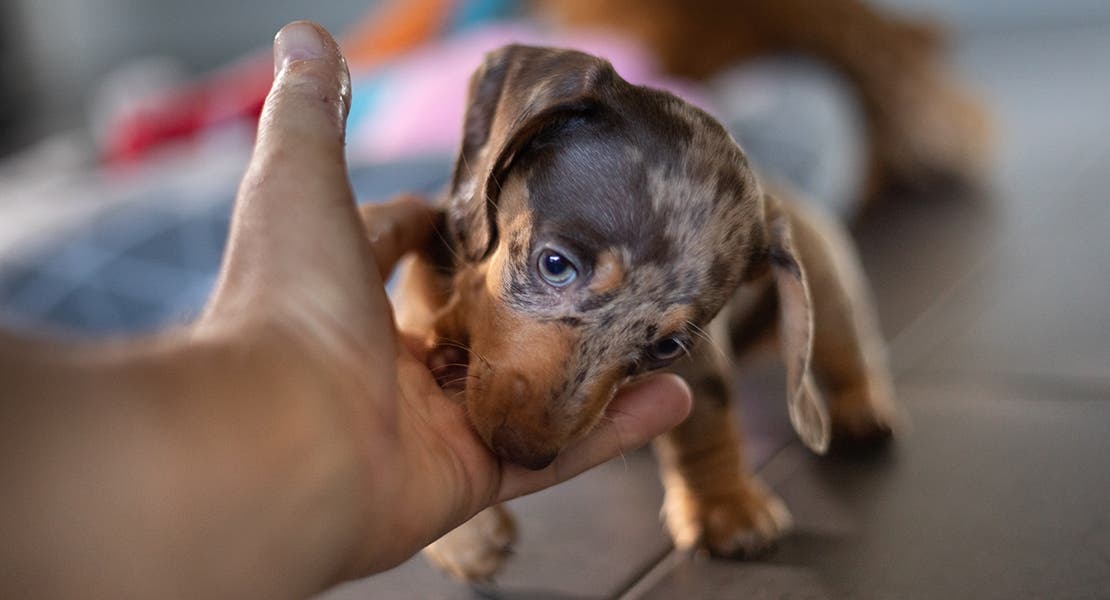
How Do I Prevent My Teething Puppy from Destroying My Home (and My Fingers)?
When puppies are teething, they want to chew on everything, be it household objects or their owners' hands. To protect both your personal objects and body parts, take these preventive steps:
- If your puppy is crate-trained, keep them in their crate: Ideally, crate training begins as soon as you bring your puppy home. Putting your puppy in a secure, comfortable crate is a great way to prevent damage, especially when they're home alone. Be sure to put a few chew toys in the crate to help your pup work off some energy and stay occupied.
- Keep the dog in a puppy-proofed area: If a crate isn't an option, place a baby gate in an area of the house without objects that may tempt your puppy or are easy to tear apart.
- Teach your puppy what is acceptable to chew on: When your puppy picks up a personal object, immediately take it away and replace it with one of their toys while offering praise and treats. Positive reinforcement helps with obedience training.
- Tidy up the home: Simply clearing the floor of clothes, shoes, baby toys and other household objects that could seem like tasty chew toys to your puppy can go a long way.
- Show your puppy that it hurts when they bite you: It's normal for teething puppies to nip at their owners. Don't punish your dog aggressively by pushing them away. Simply emit a high-pitched yelp and pull your hand away to express your displeasure.
The puppy teething process can be difficult, but patience is key. Once you've cleared the teething hurdle, a healthy dental routine, including regular cleanings at the vet, will help your dog's mouth remain pain-free.
Related Articles
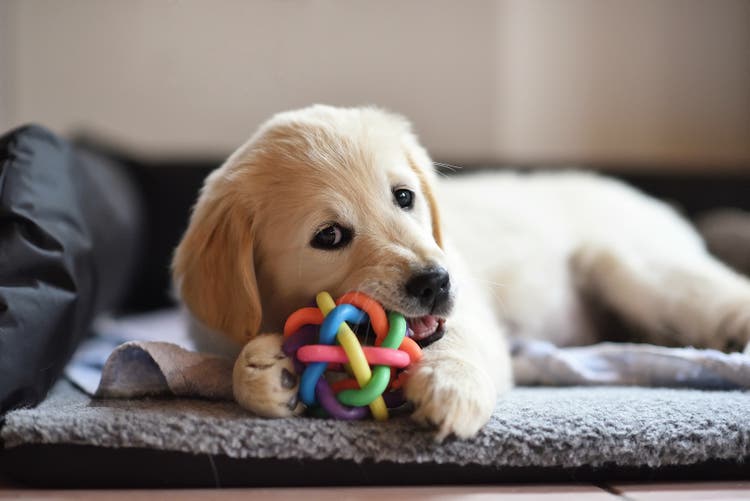
Puppy Parenting: Our Downloadable Guide
New puppy? Whether this is your first go-round or your fifth, we know that so much goes in to raising healthy, happy pups. Check out our free guide, also available to download!

